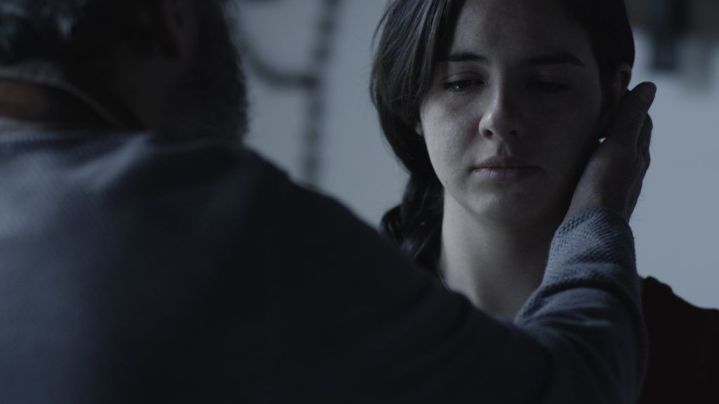Catch the Most Exciting New Movies Coming out of Ecuador at This US Film Festival

'Cenizas' still courtesy of Miami Film Festival
The Ecuadorian Film Festival in New York has the distinction of being the first-ever fest to focus exclusively on cinema from that South American country. Back for its fourth edition, the week-long event will be showcasing five feature films and seven shorts that represent Ecuador’s budding film industry. To further stress the fest’s cultural connections to both Ecuador and its host city, this year’s poster includes a “guagua de pan” replacing the heart in the famous “I [heart] New York” tagline. The image is an obvious nod to the fest’s new October dates as the guagua de pans are usually a Día de Muertos treat.
Offering two different but complementary takes on natural disasters are Juan Sebastián Jácome‘s Cenizas and Javier Andrade‘s 52 segundos. The former is a family drama about a young woman reaching out to her estranged father just as the volcano Cotopaxi is spewing ash and threatening to erupt. At the heart of this somber story about sexual abuse accusations are secrets that once broke a family apart, and may yet keep father and daughter apart. The latter movie, a documentary shot right after a 7.8 magnitude earthquake shook the coast of Ecuador back in 2016, is set in Andrade’s own hometown of Portoviejo. Capturing the human tragedy with heartbreaking firsthand accounts and even security cam footage of the earthquake itself, 52 segundos is a powerful document of a community’s resilience, even as it’s surrounded by rubble.
Also taking that 2016 earthquake as its inspiration is Andrés Cornejo’s Contragolpe (Counterstrike). A fictionalized take on the gestures of solidarity undertaken by a small soccer club in the wake of the earthquake, Cornejo’s heartwarming tale tells the story of how the Independiente del Valle decided to play a pivotal game at the famed Estadio Olímpico Atahualpa and donate all profits to humanitarian aid projects in the country. Tracking their various matches as well as their aid to quake victims, Counterstrike is the soccer feel-good movie you didn’t know you needed.
The fest will also be offering two narratives about men facing a changing world. Diego Araujo‘s black-and-white Agujero negro (Black Hole) follows thirty year old Victor as he daydreams about a better life with the young, nubile teenager next door, to escape facing the mounting responsibility of caring for the kid his live-in girlfriend is now carrying. Chronicling a very different kind of identity crisis is Nora Salgado’s Torero. Her documentary tracks the current day-to-day of former bullfighter Mariano Cruz Ordóñez, who’s seen his sporting world changing before his very eyes. Salgado captures Cruz Ordoñez as he decides what to do with his life, now that his successes lay behind him and a growing family demands his attention.
The 4th Ecuadorian Film Festival in New York runs October 25-November 4, 2018